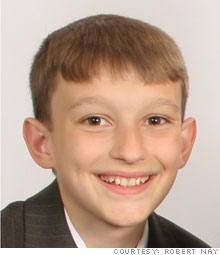Student’s run on Quizlet. The title doesn’t exactly reflect Sutherland’s heart for the product he founded but conveys the origins the flashcard flipping and sharing web and mobile app. As a junior in high school, Sutherland wanted to do better on a French test, so tackled this seemingly unsolvable problem with a group of friends once for us all.
With origins so humble and familiar, it’s startling that Quizlet has grown into a small company that helps tens of millions of students representing all ages prepare for their tests. That 15-year-old who aced French test brought his brilliant solution with him to MIT where it eventually became the small San Francisco company it is today.
Sutherland demonstrates that “nailing the problem” is what’s most important when growing an idea into a business. Quizlet remains focused on serving as many students as possible with a largely free software solution. Sutherland gave up the reigns of Quizlet to a new CEO a few years ago while staying on as CTO. Relenting your control on your business may be what’s best if you want your product to continue solving the problem serves to solve.
Today, Quizlet’s mission statement is to help students practice and master whatever they’re learning while providing students and teachers with the ability to create their own content for learning and teaching.


 When thinking about the type of person who would be coined with he term “entrepreneur”, one might envision a well-dressed, business-professional man or woman in a skyrise. While this is true in many instances, there are numerous examples of uncommon people starting uncommonly successful businesses. One prime example of this are the young entrepreneurs who began the sports entertainment dynasty that is Dude Perfect. The co-founders of Dude Perfect, at the time it began, college roommates at Texas A&M University. They created a “trick shot” video out of a backyard and it was an instant hit on YouTube, gathering an impressive 200,000 views over just one week. After this success, the group began to produce more exciting, more impressive videos of seemingly impossible trick shots.
When thinking about the type of person who would be coined with he term “entrepreneur”, one might envision a well-dressed, business-professional man or woman in a skyrise. While this is true in many instances, there are numerous examples of uncommon people starting uncommonly successful businesses. One prime example of this are the young entrepreneurs who began the sports entertainment dynasty that is Dude Perfect. The co-founders of Dude Perfect, at the time it began, college roommates at Texas A&M University. They created a “trick shot” video out of a backyard and it was an instant hit on YouTube, gathering an impressive 200,000 views over just one week. After this success, the group began to produce more exciting, more impressive videos of seemingly impossible trick shots.



